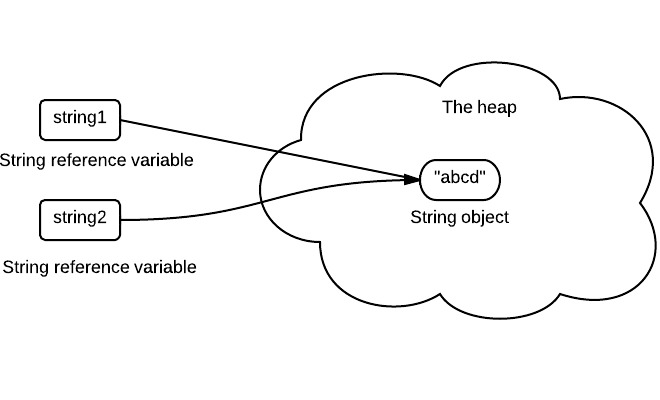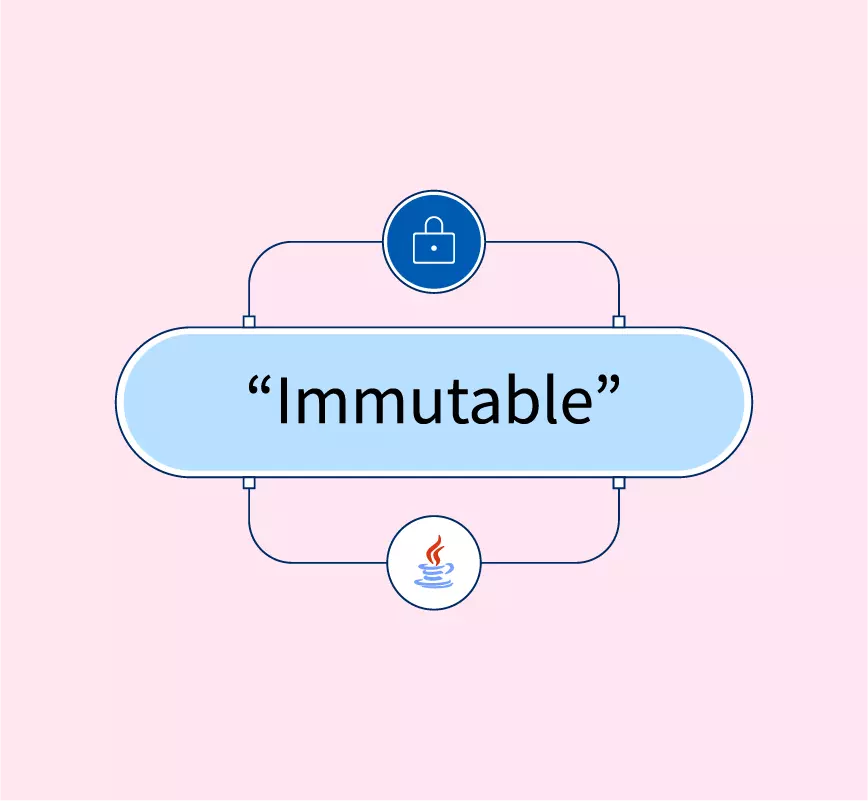Why Are Strings Immutable in Java? Enhancing Code Dependability
Why Are Strings Immutable in Java? Enhancing Code Dependability
Blog Article
Discovering the Benefits of Immutable Strings in Modern Programming Paradigms
In the realm of contemporary programs standards, the concept of unalterable strings stands as a keystone of robust software program advancement. By taking on unalterable strings, designers can make certain improved information stability, boosted thread safety, streamlined debugging processes, raised safety and security measures, and reliable efficiency optimization.
Boosted Data Honesty

By stopping the alteration of string objects, immutability gets rid of the threat of unintended changes to the information they hold. This not only boosts the safety of the information but likewise enhances the reliability of the code that depends on these strings.
Immutability likewise supports much safer multithreading settings, as concurrent access to immutable strings does not posture the risk of data corruption through synchronised alterations. This residential or commercial property streamlines the procedure of managing strings in identical programming circumstances.
In significance, immutability works as a protective guard around the data saved within strings, improving their honesty by ensuring that when defined, their values continue to be unchanged throughout the program's execution.

Boosted String Safety
Unalterable strings boost the thread security of programs by making sure that when a string object is created, its worth can not be customized. This residential or commercial property eliminates the risk of simultaneous threads trying to change the exact same string concurrently, which could bring about information corruption or irregular states in the program - Why are strings immutable in Java?. In a multi-threaded environment, where several threads access and control information concurrently, the immutability of strings supplies a degree of safety by assuring that the information stays unmodified throughout its lifecycle
Simplified Debugging Processes
Provided the enhanced string security facilitated by immutable strings, a considerable advantage emerges in the realm of streamlined debugging procedures. Unalterable strings, once created, can not be changed, making it less complicated to map the circulation of information and identify the resource of bugs in a program. This immutability makes certain that strings stay regular throughout the implementation of the program, lowering the likelihood of unanticipated adjustments that could bring about mistakes.
When debugging with mutable strings, developers frequently experience problems where a string's value is modified inadvertently, making it testing to pinpoint the origin cause of a pest. Nevertheless, with unalterable strings, the information stays the same, enabling programmers to concentrate on examining the actual logic of the code instead than finding where and when a string was customized improperly.
Additionally, immutable strings simplify the debugging process by enabling easier recreation of pests. Because unalterable strings do not change state, designers can recreate and study bugs better, resulting in quicker identification and resolution of problems within the codebase. This structured debugging process ultimately adds to greater software quality and enhanced total growth performance.

Enhanced Safety Actions
Enhancing information defense and strengthening system stability, the use of unalterable strings in software program applications contributes dramatically to boosted safety procedures. Immutable strings, once developed, can not be changed, click here for more supplying a critical protection versus harmful meddling or unapproved access. By ensuring that sensitive information kept in strings stays unaltered throughout the program's execution, the danger of data violations or injection attacks is significantly reduced. Why are strings immutable in Java?. Unalterable strings additionally play an essential duty in stopping typical safety and security vulnerabilities such as buffer overflows and SQL injection attacks, as attempts to manipulate string data at runtime are inherently limited.
In addition, the Home Page immutability of strings enhances the predictability of program behavior, making it easier to verify inputs and protect against unexpected modifications that can jeopardize protection. This predictability simplifies the procedure of bookkeeping and verifying code, allowing designers to identify possible security loopholes better. On the whole, incorporating unalterable strings into software program advancement practices not only boosts the robustness and reliability of applications however also strengthens their durability versus safety and security risks.
Efficient Performance Optimization
When dealing with mutable strings, procedures like concatenation or substring creation frequently result in the production of brand-new string objects, leading to memory overhead and enhanced processing time. By allowing strings to stay constant and unchangeable, unalterable strings assist in much better memory management and caching opportunities, ultimately enhancing the total efficiency of the software program.
Given that immutable strings can not be customized as soon as developed, they can be shared throughout threads without the risk of unanticipated changes, lowering the demand for synchronization devices and enhancing concurrency. Unalterable strings simplify debugging processes as designers can trust that a string's worth will certainly stay consistent throughout the program's execution, getting rid of prospective mistakes caused by mutable state adjustments.
Verdict
Finally, the benefits of making use of immutable strings in contemporary programming standards can not be overemphasized. Boosted information stability, enhanced thread safety and security, simplified debugging procedures, raised safety actions, and reliable performance optimization all add to the general performance of programming tasks. By including immutable strings into programming methods, programmers can gain from a much more reputable and durable codebase.
Immutability, an essential feature of strings in shows languages such as Java and Python, makes sure that when a string item is developed, it can not be changed or modified.Immutable strings improve the thread safety of programs by guaranteeing that when a string item is produced, its worth can not be customized. Immutable strings also play an essential function in avoiding typical safety and security he said vulnerabilities such as barrier overflows and SQL shot assaults, as efforts to manipulate string data at runtime are naturally restricted.
By permitting strings to continue to be constant and stable, immutable strings assist in better memory management and caching opportunities, eventually boosting the total efficiency of the software.
Immutable strings streamline debugging procedures as developers can rely on that a string's value will certainly stay regular throughout the program's execution, getting rid of potential mistakes caused by mutable state adjustments.
Report this page